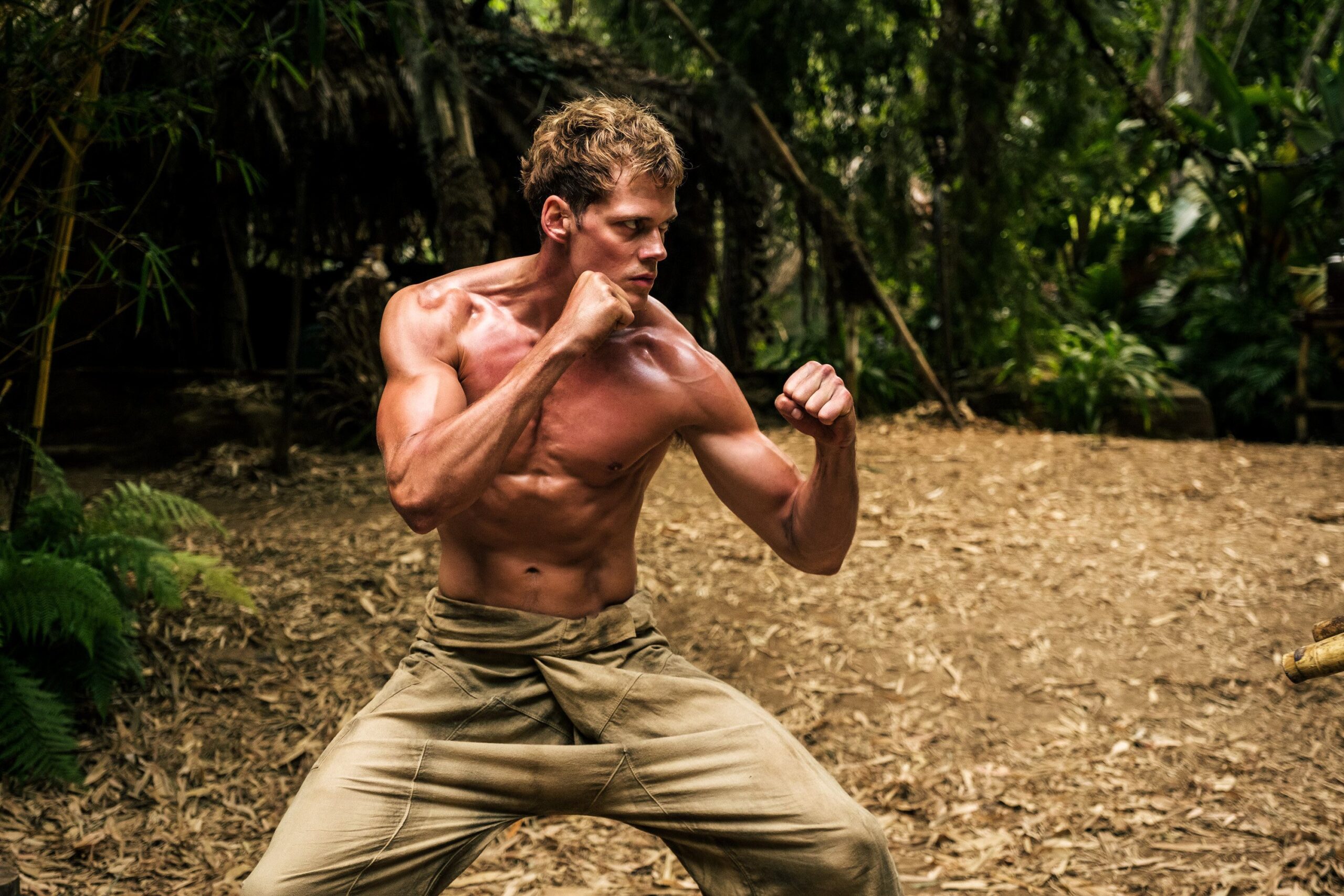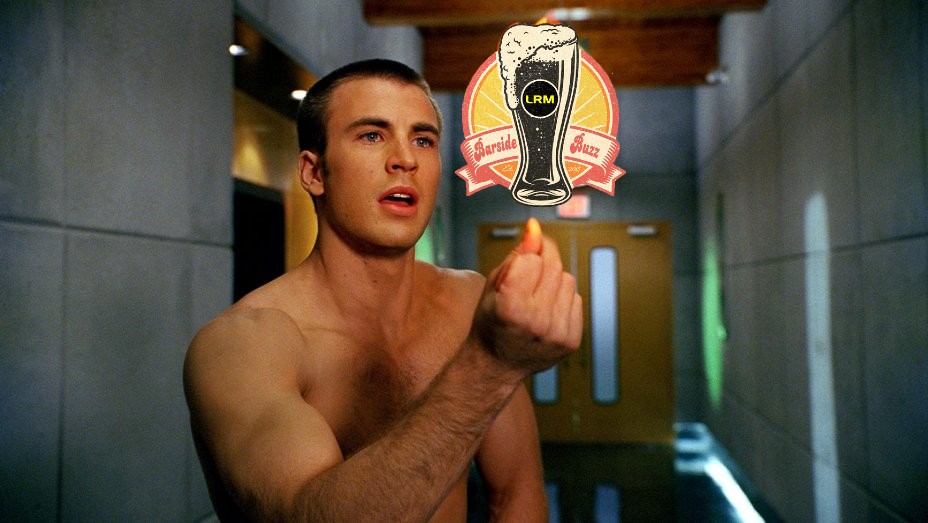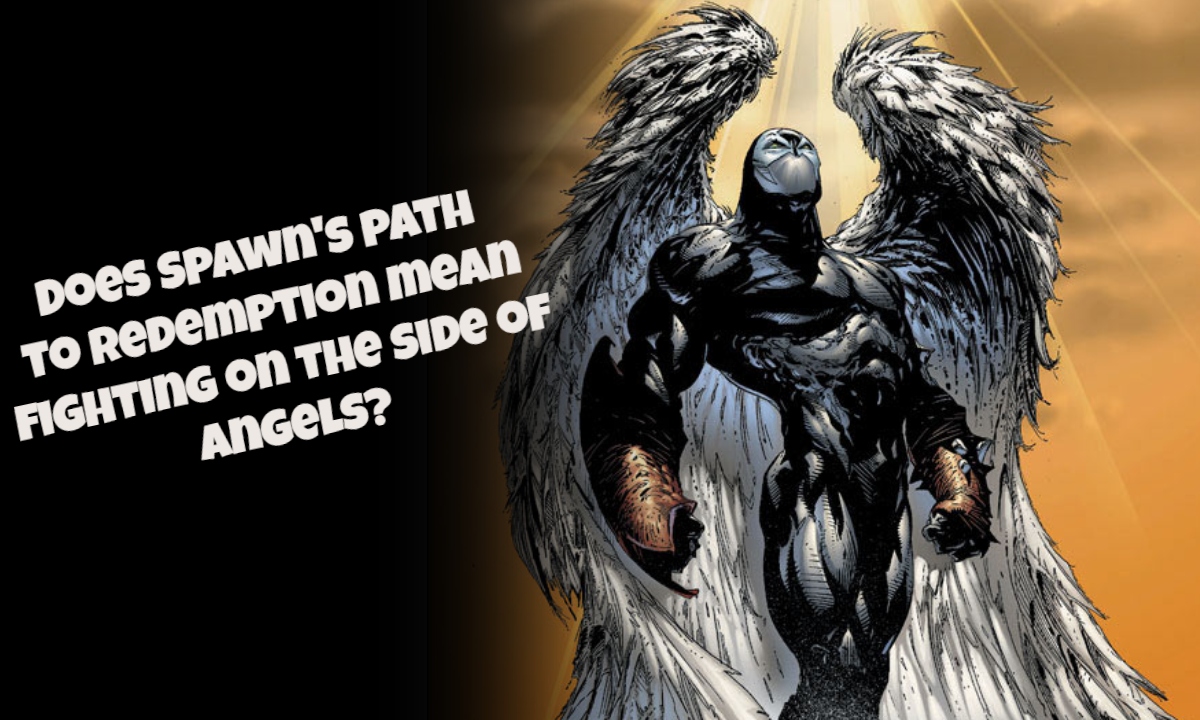Avengers: Infinity War is hitting theaters (looks at watch) pretty much now, as we speak. At this point, audiences across the world are enjoying Earth’s mightiest heroes and their struggle against the Mad Titan Thanos. This is an unprecedented culmination in filmmaking that started back in 2008, and with that comes a scope the likes of which the medium has never seen before.
Of course, directors Anthony and Joe Russo are a part of what make it all possible, but over the course of their tenure at Marvel Studios, they’ve forged an alliance with screenwriting duo Christopher Markus and Stephen McFeely. The pair first worked with the Russos on Captain America: The Winter Soldier and have since gone on to pen every Marvel film for them since. LRM had a chance to sit down these talented writers and try and pry as much information from them as humanly possible.
Check out the full interview below!
Tell me everything you can tell me about “Avengers: Infinity War”? (Laughs)
McFeely: It has been lovely meeting you. [Putting on a voice] Together they’re stronger than when they’re apart.
So for you guys, I know that this is not your first go around with the comic book movie. Did you ever imagine, to be writing a story for the Avengers.
McFeely: No, I mean, it has been a very organic process. We literally have … we walked into Marvel and never left. But, we went in to write a period Captain America movie. I never thought we were going get out of the ’40s.
Markus: That’s right.
McFeely: You know what it is, built slowly, incrementally. As organically as we can describe a giant corporate machine. The story just kept going. No, I never imagined that we’d get to an Avengers Infinity War. That’s bonkers.
Now, for you guys, did Kevin Feige and Marvel put you guys into any certain type of limits or they basically said, you know what, you can do whatever you want?
McFeely: At least at the start. Yeah. That’s been the case for all of it. We sort of start, Chris and I, our entire research and development. Blue sky, anything’s possible. In this case, we gave it a 60-page manifesto, where we just said, here are all the choices. Let’s talk about ’em. If you circle that, you don’t get this. That kind of stuff. As we all settled in on what we definitely think this is the right way to go and that means we do this and that means we do this, it starts to take shape. That’s what when the big choices get made.
Markus: Your choices eventually have big consequences.
McFeely: Yeah. And as you see them coming down the train track, you can check in with Kevin and the powers that be. This is leading to a certain spot.
Markus: Yeah. Are we okay with this?
McFeely: Are you comfortable with this spot? Because we should turn around now …
Markus: (Laughs) That’s right.
McFeely: Like, don’t make me rewrite this. So yeah, it’s a group effort but Chris and I start. Yeah.
When they presented you a checklist of superheroes to write for this, what was your first initial reaction and was there any regrets of certain characters?
Markus: It’s not a checklist. I’ll tell you what it is. It’s a box, and we request it, but it’s a box of like baseball cards with a little magnet on the back. So we can put them on the wall, and just fill the wall with all the people who are still around in the MCU and are available to us. Then we would start … some people, obviously, are related to Thanos. Or, you know, have a Time Stone around their neck. Or what have you. Like they would, sort of, demand space in the movie. Then we would start moving them around and putting different combinations together and just giggle. Like, oh, that would be hilarious if those two people met. We got to go do that. That kind of stuff.
So, it’s not a checklist. It’s basically a box that eventually people go back into the box. Some people stay on the wall. Eventually, you get something that looks like that.
Were there any regrets of any characters that you wish you could play, like Agent Carter for example?
McFeely: If you gave her a respectful funeral, you’ve taken that woman as far as you can get her unless you make Marvel Zombies.
Markus: Boo. Boo.
McFeely: I mean there are obviously, there are some characters in the comics that Marvel doesn’t currently, well currently, have the rights to.
McFeely: God knows what’s actually hatching, but you know … Silver Surfer fascinating sort of cosmic counterpoint to thousand of comics. We kind of had to take that out and figure out how else to touch on those moments.
But, no, I wouldn’t say anybody who’s been like, who was in the MCU, got hit by a truck or anything like that. There are some people I love, who just didn’t like … I would love an excuse to bring back Justin Hammer, cause he’s just hysterical. But, Thanos isn’t really going to come to Earth and team up with the evil industrialist. It’s just not.
Markus: You had to earn your way in.
When you guys were going through the writing process, which characters that you basically was your favorite that you loved to focus on?
McFeely: Well, Thanos, himself, because he’s so … he’s strong, he’s confident, he’s philosophical, he is not generically evil. He has good reasons for doing what he’s doing. You borderline agree with him. He’s always a very compelling guy that sort of dig into his justifications.
Markus: He’s the engine of the story so he gets a lot of screen time. This only works because there’s a guy you keep coming back to. He keeps showing up. People come to stop him. It’s different than almost any other MCU movie. Usually, there’s a villain that sort of mirrors your main hero. Twenty-three main heroes on this poster, right? So he’s … it’s a different structure.
Speaking of all these heroes, how do you get the balance everyone? You can’t give everyone equal time. Some people’s going to get a lot of time or 30 seconds.
Markus: Civil War, we did that. Where we decided that … like you remember where Hawkeye comes in really late in the movie but he has a nice solid story, where I sacrificed myself. I made you myself and I got put in prison, right? It’s like that, where some characters will have bigger arcs and some will have smaller arcs. Some will have arcs that are smaller in movie one and bigger in movie two and vice versa. We gave ourselves permission to use both movies. My hope is that people go, oh, if I didn’t…wait a year and decide what’s going to happen.
Now, since you guys already wrote three, your third and your fourth comic book movie yourself, do you suppose this comic fatigue is going to kick in? Obviously, it’s not kicking in for you guys.
Markus: We’re tired. (laughs) We’re tired.
McFeely: I think it depends on the comic book movie. If you’re going to keep treading the same ground with the same tone, you get tired. Marvel has been very good about switching up the tone, switching up the actors, and letting it evolve, bringing in new blood into the universe who are completely different. It’s not like Iron Man Junior. It’s Guardians of the Galaxies. It’s Dr. Strange. It’s …
Markus: Thor: Ragnarok and Black Panther came out from the same studio about four months apart. Those are wildly different movies. I do not ascribe to this idea that there’s a Marvel tone that’s all the same, where they keep putting out, that’s crap.cIt’s really different. That … it may be the most extreme, but they’re not afraid to reinvent themselves.
How do you guys feel that you are the Russo’s brother’s “go to” of writers?
Markus: It’s weird. We started a company together now.
McFeely: It’s a very satisfying partnership. It is … yeah, I think there’s a high level of mutual respect and a desire not to make a movie for the wrong reasons. Sometimes you meet people and you aren’t sure exactly why they’re in this business, what they’re getting out of it. I think we’re on very similar ground of making good movies.
Markus: Make good stories. Tell stories in however way they want to be told. It’s been really satisfying. Because every time we write a movie, we’ve been lucky to have a bunch of movies made now, and they’re always some percentage of the best they could be. Maybe our first movies like, it’s about 75 percent of what I thought it was. The Russo brother movies, they tend to be 100-110 percent of what I thought they could be.
Now, one of the things that being a part of the Marvel universe is about keeping secrets.
McFeely: Yes.
How do you guys …
McFeely: We’re keeping them right now.
Yeah. Obviously. Right? How do you guys prevent yourself from spilling anything at all obvious because you guys are writers?
McFeely: I meet very few people that give a damn. I … other parents at my daughter’s school, who are like, “Oh you’re a director of movies? Oh, I don’t see those.”
Markus: I don’t see those. They know we’re not on social media so we’re not getting that influx. We haven’t done a lot of Comic-Con or that kind of stuff which would put us in a position where people would pepper us with stuff.
McFeely: The sad fact is we’ve been in the tank for so long that everyone we know is on the crew. There’s no one to leak to.
Markus: We made friends for the last ten years and most of them work for Marvel.
Do you guys, when you guys wrote this script, did you have to write a fake script too for everybody else?
McFeely: Bits and pieces of fake script were written. Not like an entirely different script that like…Cap on a pony, though.
Markus: That’s Cap 4. Cap On A Pony. No, our assistant Joey would write some fake scenes. It became very difficult because particularly if something happened early in the movie you had to keep pretending that it didn’t. It just became unwieldy. So they just started to blackened stuff out.
Okay. One last question for you guys. What was harder to write? A big mega battle scene or the post-credits for a Marvel movie?
Markus: Battle.
McFeely: The battle. Every time.
Markus: Yeah, yeah, they’re really hard. They’re a product of a lot of people doing a lot of good work. We started and we tried to keep the emotion and the stakes on point. But then stunt pre-vis and directing and editing and all that stuff comes in. You want to make sure that’s not just action crashed and say. They’re always really hard. We do it a lot. We never get it right the first time.
Terrific. Okay. Thank you very much.
Don’t forget to share this post on your Facebook wall and with your Twitter followers! Just hit the buttons on the top of this page.

 FOR FANBOYS, BY FANBOYS
Have you checked out LRM Online’s official podcasts and videos on The Genreverse Podcast Network? Available on YouTube and all your favorite podcast apps, This multimedia empire includes The Daily CoG, Breaking Geek Radio: The Podcast, GeekScholars Movie News, Anime-Versal Review Podcast, and our Star Wars dedicated podcast The Cantina. Check it out by listening on all your favorite podcast apps, or watching on YouTube!
Subscribe on: Apple Podcasts | Spotify | SoundCloud | Stitcher | Google Play
FOR FANBOYS, BY FANBOYS
Have you checked out LRM Online’s official podcasts and videos on The Genreverse Podcast Network? Available on YouTube and all your favorite podcast apps, This multimedia empire includes The Daily CoG, Breaking Geek Radio: The Podcast, GeekScholars Movie News, Anime-Versal Review Podcast, and our Star Wars dedicated podcast The Cantina. Check it out by listening on all your favorite podcast apps, or watching on YouTube!
Subscribe on: Apple Podcasts | Spotify | SoundCloud | Stitcher | Google Play







